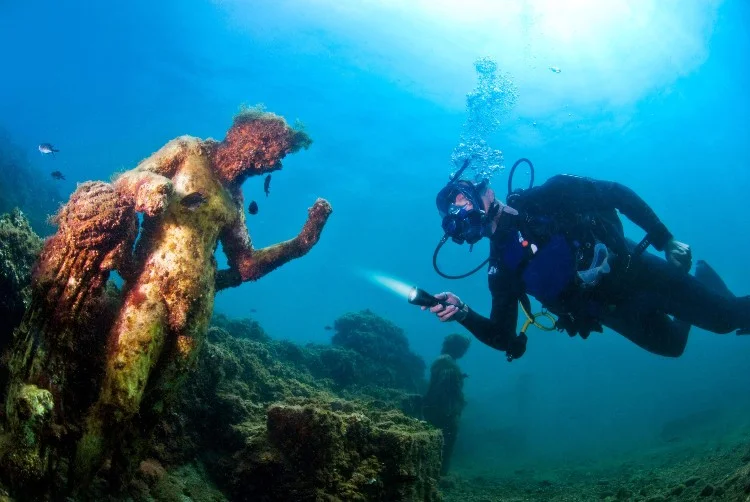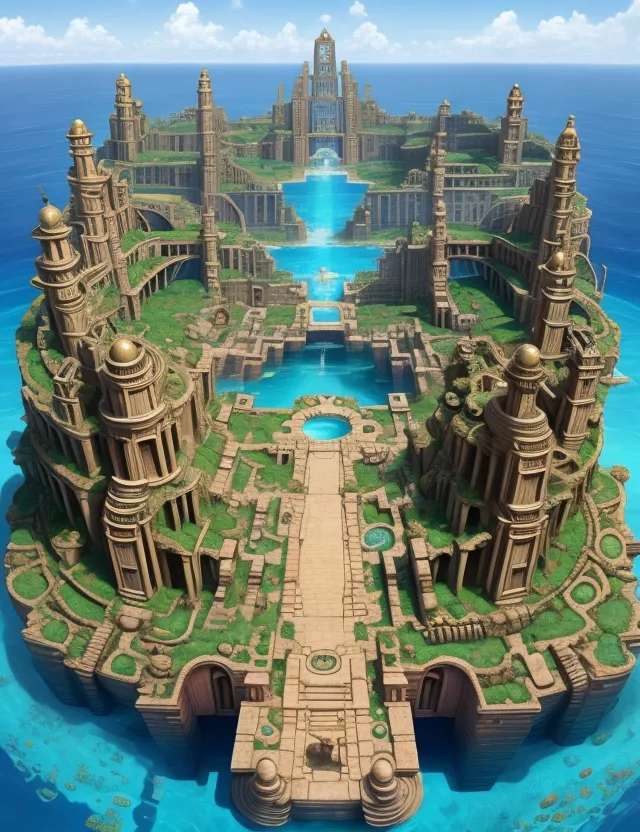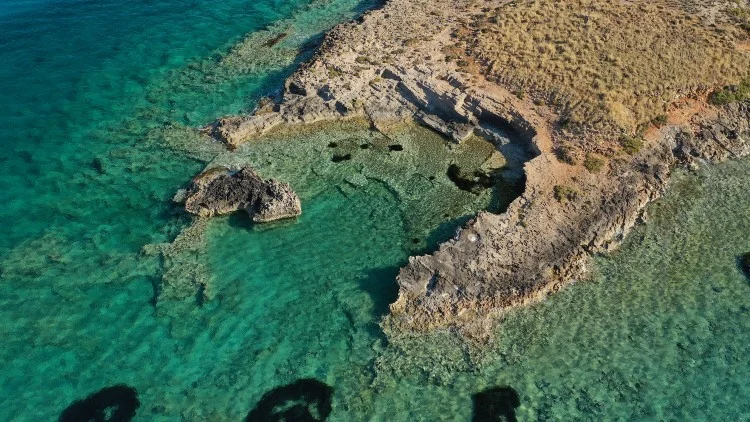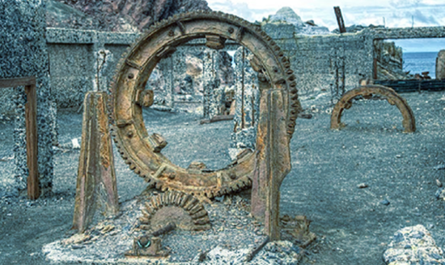The search for Atlantis has been a long and frustrating journey, full of dead ends and speculation. But the reason is simple—Atlantis never existed. No city bearing that name ever stood above the waves, nor was it punished by the gods and submerged beneath them.

To the disappointment of countless antiquarians, most scholars agree that Atlantis was nothing more than a philosophical construct created by the Greek thinker Plato. Yet, despite being widely dismissed as fiction, the tale of Atlantis has captivated imaginations since the late 19th century and continues to thrive in popular culture.
However, Atlantis was originally conceived as an allegory. What role did it serve in Plato’s writings? When did people start believing it was a real place? And why has its legend endured for so long?
The Story of Atlantis

Plato’s dialogues Timaeus and Critias introduce the tale of a powerful city-state founded by Neptune, the god of the sea. Atlantis was described as a wealthy and formidable island empire, once larger than Libya and Asia combined. However, as Plato wrote, violent earthquakes eventually caused it to sink beneath the sea, leaving behind only a muddy, impassable ruin.
Atlantis was initially a utopia, ruled by virtuous leaders. But over time, its people became greedy and corrupt, failing to honor the gods as they once had. As punishment for their arrogance, divine forces unleashed fire and earthquakes, ultimately destroying Atlantis.
Plato’s Philosophical Thought Experiment

Image Credit: Wikimedia Commons / Stitched together from vatican.va
The Atlantis story originates solely from Timaeus and Critias, making Plato and his contemporaries the only ancient sources for the tale. Unlike historians of his time, Plato was a philosopher, and he used Atlantis to illustrate a moral lesson within a Socratic debate.
A crucial element often overlooked in retellings of the story is Athens’ role. In Plato’s narrative, Athens—his home city—is forced to defend itself against the aggressive and impious Atlantis. This was a deliberate literary device. Plato had previously described his vision of an ideal society, and here, he imagines how such a state would stand against external threats.
Atlantis is introduced as part of a theoretical exercise, with the character Socrates inviting others to imagine Athens in battle against other states. He prompts them, saying, “I’d like to hear from someone an account of our city contending against others in typical inter-city contests.”
Plato presents Atlantis as a powerful but flawed civilization, in stark contrast to the idealized, god-fearing Athens. While Atlantis is doomed to destruction, Athens emerges victorious.
Thomas Kjeller Johansen, a Professor of Ancient Philosophy, explains that Atlantis was “a story fabricated about the past to reflect a general truth about how ideal citizens should behave.”
A Distant Time and Place
The very way Plato frames Atlantis in his dialogues suggests that it was never meant to be taken as historical fact. To ensure no one confused it with real events, he set the story 9,000 years in the past, beyond the known Greek world—somewhere beyond the Gates of Hercules, now recognized as the Strait of Gibraltar.
This placement makes little historical sense. Athens, as described in the story, did not exist at the time, nor did it have a large population, military, or empire. As Johansen writes, “It is constructed as a story about the ancient past because our ignorance of that time allows us to suspend disbelief.”
The True Location of Atlantis
If one were to pinpoint where Atlantis truly existed, the answer would be clear: it was born in Plato’s Academy, just outside the city walls of Athens, sometime in the mid-4th century BC.
The Enduring Myth
Although Atlantis itself was fictional, real-world floods and natural disasters may have inspired Plato’s fable. Ancient societies were familiar with earthquakes and tsunamis, and such events might have shaped his story.
Over time, as scientific understanding of continental drift developed, belief in a “lost continent” faded. However, the myth of Atlantis continued to thrive, overshadowing Plato’s original moral lesson.
The legend took a new turn in the 19th century when writers mistook Plato’s allegory for historical fact. The French scholar Brasseur de Bourbourg was among the first to link Atlantis to Mesoamerican civilizations, proposing a controversial theory of pre-Columbian contact between the Old and New Worlds.
Then, in 1882, Ignatius L. Donnelly published Atlantis: The Antediluvian World, a widely influential (but deeply flawed) book that claimed Atlantis was the common ancestor of all ancient civilizations. His ideas popularized the notion of Atlantis as a real place inhabited by an advanced, sun-worshipping civilization—beliefs that persist to this day.
Cities That Really Sank Beneath the Waves

Image Credit: Aerial-motion / Shutterstock
While Atlantis itself never existed, history has witnessed the submersion of several real cities.
In the early 2000s, divers discovered the ruins of Thonis-Heracleion off Egypt’s north coast. Once an important trade hub, the city was known to Greek historians and served as Egypt’s main emporium until Alexandria took its place in the 2nd century BC. Built on the Nile Delta, Thonis-Heracleion eventually succumbed to earthquakes, rising sea levels, and soil liquefaction, disappearing beneath the water in the late 2nd century BC.
Pavlopetri, an ancient Greek city in Laconia, met a similar fate. Believed to date back to 2800 BC, it was submerged around 1000 BC. The remains of its buildings and streets resemble a well-planned urban settlement.
Meanwhile, on England’s south coast, the medieval town of Old Winchelsea in East Sussex was devastated by catastrophic flooding during a powerful storm in February 1287.
Though the legend of Atlantis will likely persist, the real stories of sunken cities remind us that the forces of nature have always reshaped civilizations—sometimes in ways that inspire myths that last for millennia.


